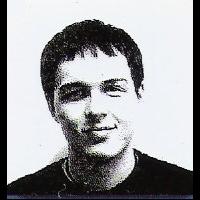Mesaĝoj: 20
Lingvo: English
Miland (Montri la profilon) 2007-oktobro-03 21:25:30
Stefano B:Juna Amiko, Vere aŭ Fantazie?, Baza Esperanta Radikaro, William Auld's Paŝoj al Plena Posedo:They are paper publications, and so you would have to buy them from Esperanto organisations. However, some articles from Juna Amiko are available on this website, but without the vortaretoj at the end, which I found very useful as a beginner.
Where can one find these?
erinja (Montri la profilon) 2007-oktobro-04 01:10:08
I highly recommend the book "Paŝoj al plena posedo", but it is aimed at intermediate level students. If you still consider yourself a beginner, I don't know if I would recommend it. It has a ton of useful vocabulary but the vocabulary is definitely more complex (and the words less common) than what you would find in a magazine like Juna Amiko, or a book like Vere aŭ Fantazie.
awake (Montri la profilon) 2007-oktobro-04 13:16:36
[url=http://eo.wikipedia.org/wiki/Ĉefpaĝo]Wikipedia[/url]
There are very nearly 90,000 articles to choose from. Most of the articles tend to be shorter versions of their English counterparts (and many topics still have articles yet to be written). So if you want to practice writing as well as reading, you can translate articles from the English wikipedia to the Esperanto one. This could include writing new articles or expanding/correcting articles that are already there. Plus, you get to pick topics that interest you, which is always better for learning purposes. Even if you make some grammar mistakes, It shouldn't be too much of a problem because Someone is eventually going to correct it. (The collaborative nature of wikipedia is one of the best things about it.)
I think i'm going to start doing this myself, as I think it could be a great way to give back to the Esperanto community.
Maybe someday soon we can get the total # of esperanto articles to above 100,000 (only 10,000 or so to go)
 There are not even very many National Languages with more than 100,000.
There are not even very many National Languages with more than 100,000. Oddly, Volapük has over 100,000 articles listed. I was suspicious about that since there are probably less than 100 or so Volapük speakers in the world. Turns out they cheated, some Volapük enthusiast wrote a computer program that posted thousands and thousands of short articles from templates.
We (the EO community) should strive for both increasing both the quantity of the articles and their quality.
Betka (Montri la profilon) 2007-oktobro-04 22:15:57
Oddly, Volapük has over 100,000 articles listed. I was suspicious about that since there are probably less than 100 or so Volapük speakers in the world. Turns out they cheated, some Volapük enthusiast wrote a computer program that posted thousands and thousands of short articles from templates.I checked the English Wikipedia, it estimates the current number of speakers to be 25 to 30. It used to be quite popular in the 19th century, but then it was replaced by Esperanto. Besides, Volapük is not exactly a neutral language, it's Christian.
Anyways, the Esperanto Wikipedia must be an excellent resource. Most of the articles are pretty short, but that's good because I read very slowly in Esperanto.
awake (Montri la profilon) 2007-oktobro-05 00:07:32
Betka:I'm not sure what you mean that it's a christian language. Was it designed to somehow spread christianity?
I checked the English Wikipedia, it estimates the current number of speakers to be 25 to 30. It used to be quite popular in the 19th century, but then it was replaced by Esperanto. Besides, Volapük is not exactly a neutral language, it's Christian.
Betka:Some of them are actually quite full, but yes most of them are short. Earlier I was playing with the "Random Page" link, and I noticed that a lot of the Esperanto articles are only a sentence or two, things like "City X is located in country Y." While technically that is an article, it's not really very useful. I wonder how many articles there are with more detailed information. The numbers aren't quite as impressive as they first seemed.
Anyways, the Esperanto Wikipedia must be an excellent resource. Most of the articles are pretty short, but that's good because I read very slowly in Esperanto.
Incidentally, I also found this to be (a least a little) true about the English wikipedia on its random page picker.
Still, even with this criticism, it's a fantastic resource.

T0dd (Montri la profilon) 2007-oktobro-05 01:28:46
awake:Turns out they cheated, some Volapük enthusiast wrote a computer program that posted thousands and thousands of short articles from templates.Some fraction of the Esperanto articles were created in the same way. I'm not sure how many.
awake (Montri la profilon) 2007-oktobro-05 03:08:48
T0dd:awake:Turns out they cheated, some Volapük enthusiast wrote a computer program that posted thousands and thousands of short articles from templates.Some fraction of the Esperanto articles were created in the same way. I'm not sure how many.
Betka (Montri la profilon) 2007-oktobro-05 13:59:49
awake: I'm not sure what you mean that it's a christian language. Was it designed to somehow spread christianity?Volapuk was created by Johann Martin Schleyer, a Roman Catholic priest in Baden, Germany. Schleyer felt that God had told him in a dream to create an international language. Schleyer first published a sketch of Volapük in May 1879 in Sionsharfe, a Catholic magazine of which he was editor. One of the very first texts was a translation of The Lord's Prayer.
Source: English Wikipedia
awake:While it's true that many articles are quite short, I have found that articles related to the Esperanto movement are longer. Try looking up:
Earlier I was playing with the "Random Page" link, and I noticed that a lot of the Esperanto articles are only a sentence or two, things like "City X is located in country Y." While technically that is an article, it's not really very useful. I wonder how many articles there are with more detailed information. The numbers aren't quite as impressive as they first seemed.
[LISTO]
Ĵomart kaj Nataŝa
La Perdita Generacio
Lernu!
Marjorie Boulton
William Auld[/list]Overall though, I do agree that most of the articles are short. Of course, for me that means it's going to be more fun improving it.

RiotNrrd (Montri la profilon) 2007-oktobro-06 01:20:55
Betka:So, does that mean that Esperanto is an "oculist" language?awake: I'm not sure what you mean that it's a christian language. Was it designed to somehow spread christianity?Volapuk was created by Johann Martin Schleyer, a Roman Catholic priest in Baden, Germany.

Stefano B (Montri la profilon) 2007-oktobro-06 04:28:03
RiotNrrd:Betka:So, does that mean that Esperanto is an "oculist" language?awake: I'm not sure what you mean that it's a christian language. Was it designed to somehow spread christianity?Volapuk was created by Johann Martin Schleyer, a Roman Catholic priest in Baden, Germany.

Schleyer believed that he had been instructed by God himself to create an international language. He must have been something of a loony, if you ask me. Zamenhof made no such divine claims about Esperanto.
Volapuk is a "Christian" language because it's founder believed that the Christian God had instructed him to create the language, not simply because the founder was a Christian. I hope that helps.






